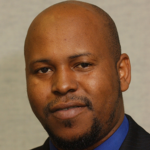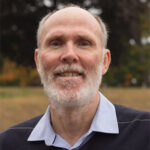Forging new directions in the demographics of religion
Religion is a critical factor in demographic calculations and projections because behavior is often guided by religious belief and practice. Since religious demographic projections are used by governments, corporations, and religious organizations worldwide to create policy and influence decision-making, it’s crucial that the data sets underlying those projections be as accurate as possible. Precise and accurate projections depend upon more than just census data. Religiosity must be measured in all its many dimensions.
MRC advances religious demography by developing a sophisticated measure of religiosity which avoids overreliance on survey data. Survey data can be misleading — for example, while 95% of Norwegians identify as Lutheran on such surveys, less than half hold religious beliefs and only around 6% regularly attend religious services. MRC’s way of measuring religiosity avoids such simplifications by taking account of six different dimensions: census data, committed religious self-identification, religious service attendance, private religious practices, the subjective importance of religion, and supernatural worldviews. Incorporating this multi-dimensional measure of religiosity overcomes significant limitations in existing religious demographics and fosters a more accurate discussion of religious identity and change.
Advancing simulation engineering
Through a dynamic, scalable simulation platform built upon modern cloud architecture, and informed by technologies employed by leading-edge game studios, the MRC engineering team is creating real-time, complex, theory-based simulations of religious and nonreligious identity and change in the USA, Norway, and India – and time permitting, Nigeria, Chile, New Zealand, and China. The idea is to create artificial societies with cognitively plausible and behaviorally believable AI agents, and then measure the change in religiosity over time in those artificial societies. This approach advances the field of human simulation by producing a standard, computable model of religious cognition, emotion, and behavior.
The project will demonstrate that computational simulation can be used to generate subtler, and therefore more useful projections. By incorporating varying measurement assumptions, this flexible model will allow for more fine-grained projections of religious identity than is possible with traditional demographic methods. These tools will allow researchers, government agencies, and other stakeholders to visualize the effects of measurement assumptions on demographic projections and predict trends in religious identification more accurately. Once validated, our agent-based framework can be used as an experimental platform for testing policy ideas ethically, and inexpensively. It will lay the groundwork for future generalizable simulation deployment.
Meet the MRC Team

Saikou Diallo

Louise Salinas




















